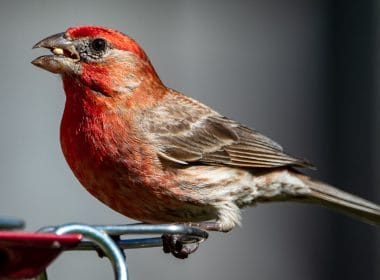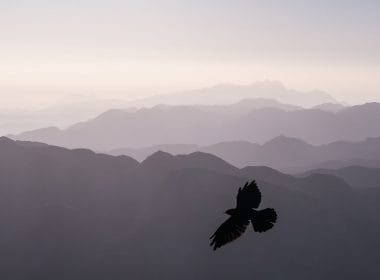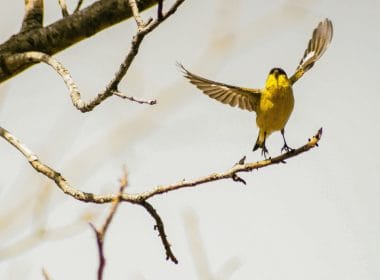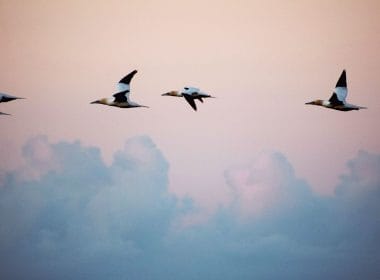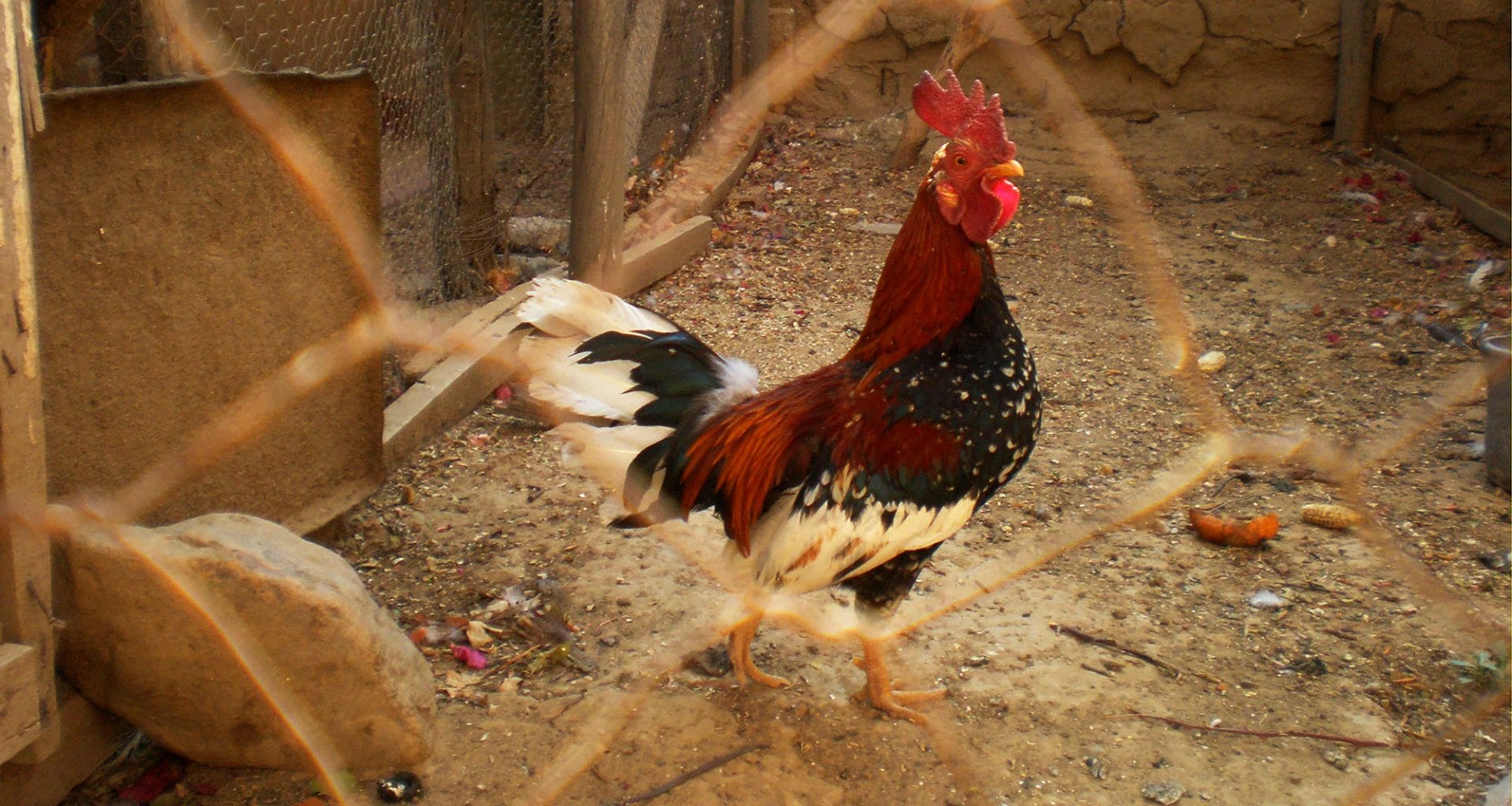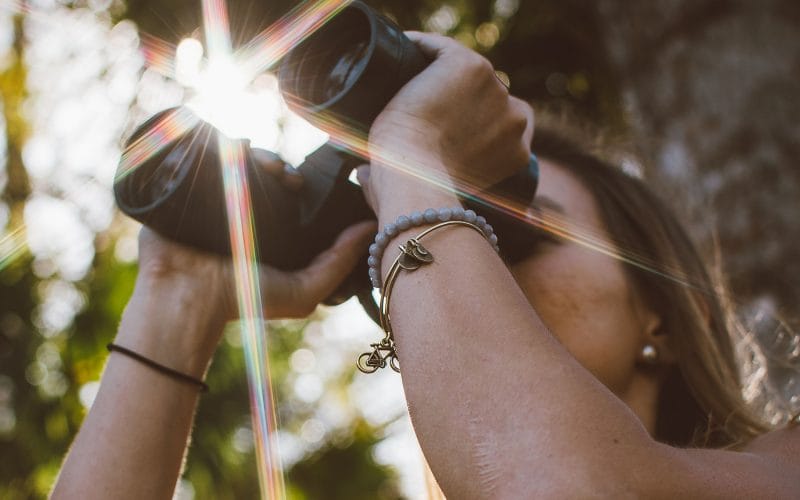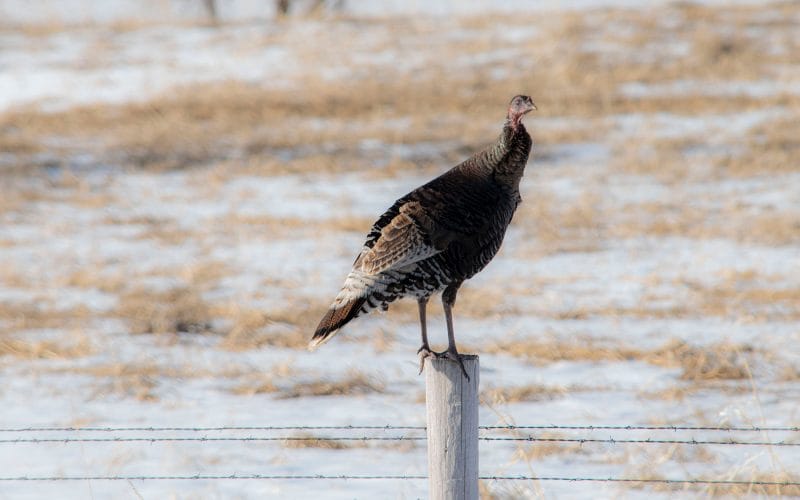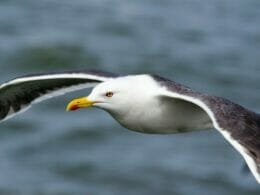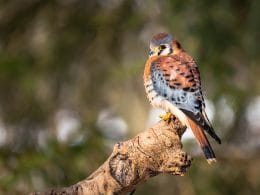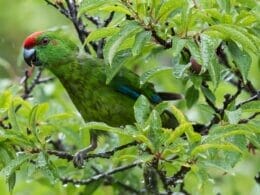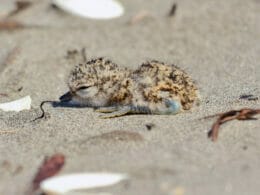Roosters have a reputation for waking the dawn, but that doesn’t mean they restrict their crows to the morning. Roosters will crow all day, even when you are out and don’t hear them. So why do roosters crow all day?
One of the main reasons roosters crow is because they hear another rooster crowing, and this will trigger them into crowing too. Crowing is also a way for roosters to demonstrate their territory and also to establish their authority among males.
Roosters are even known to crow after their hen partner has laid eggs. There are innumerable reasons for a rooster to crow, and researchers are still defining the exact reasons why they do. Some roosters will even crow when they want to call back their hens. In short, a rooster will crow for any reason, primarily to simply be heard.
Why Do Roosters Crow All Day?
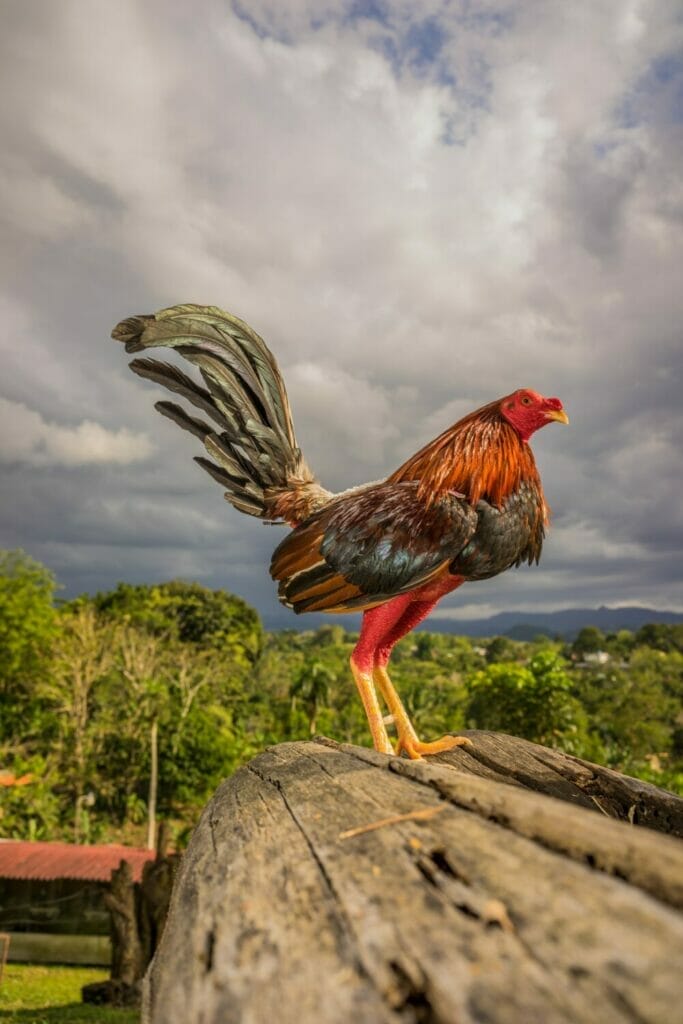
Roosters crow all day, but they crow in the morning because of the dawning light of a new day. All birds are regulated by the light, whether by the change of night into day and the night back into day.
So, we have established that a rooster will crow all day, simply because it can. Therefore, the question is, why do roosters crow? And what makes them crow?
Author Note: Some rooster species crow more than others. More docile roosters, like the Silkie Rooster, are typically a more docile breed. Therefore, they crow less. Other breeds that are not as docile and display more aggressive tendencies are known to crow more often.
But do all roosters really crow at dawn? A crow and the sunrise is a long-standing connection, but not all roosters will typically crow at dawn. They will crow at dawn if they want. But they can crow throughout the morning, at noon, throughout the afternoon, and in the evening too.
Why Do Roosters Crow at Sunrise?
The association with a rooster crowing at sunrise has many people believing that the purpose of a crowing rooster is to wake up everyone within earshot.
But, when we take the dawn chorus into account, we see the rooster merely doing what the rest of the birds do. While a cock-a-doodle-doo doesn’t sound like a melodic birdsong, it is the only ‘song’ a rooster knows.
However, many roosters begin their crow even a couple of hours before dawn. Why is this?
The matter of roosters crowing before daybreak was relatively unresearched territory up until March 2013. A paper published by researchers Tsuyoshi Shimmura and Takashi Yoshimurs shows how the assumption of roster crowing only at daybreak is false.
Here’s what the researchers found tells us: A rooster’s internal clock works on an average of 23.8 hours. This is why a rooster will sometimes crow a couple of hours before daybreak. There is usually one main rooster that rules the roost, and he will typically be the first to crow.
The main rooster will kick off the morning’s crowing, and the rest of the roosters will follow. If there are a few roosters in one area, this can become rather noisy.
If the rooster crows throughout the day, why do we notice it the most at dawn? Well, we humans are typically still awakening from our own slumber at dawn. It’s only natural that the rude awakening of a rooster’s crow will make a lasting impression.
Crowing to Announce Their Territory

One of the main other reasons that roosters crow, aside from the changing light, is to make a loud claim for their territory.
Chickens originally come from Eastern countries like Myanmar, India, China, East Indies, and Thailand. Explorers and trade ensured that chickens traveled to all corners of the globe and can now be heard crowing in nearly every country.
Chickens originally come from countries with dense vegetation. So, their crow is loud so that they can be easier identified. Other fowls and birds would struggle to see the chickens in the dense jungle and vegetation, so their crow would be used as a signal.
A rooster will crow to let other birds, especially other fowls, of their territory. Crowing will also be a useful way for flocks to let each other know where they are. We can often hear neighboring flocks crowing back and forth to each other, so they know each other’s movements. Chickens are able to determine how far the other roosters or flock is and whether or not they are moving closer or further away.
Did You Know? Chickens and roosters have excellent hearing and can use this acute sense to determine another rooster’s exact location.
Why Do Roosters Crow at Night?
If you have ever lived close to roosters, then you would have heard them crowing in the middle of the night at least once. Why is this?
Crowing is used to determine location, territory, and with the changing light. But they also crow to when they sense danger. Whether it is something passing by, like a car, or a real predator, the rooster will most probably crow if the sound is unusual. The crow is generally issued so the rooster lets the potential predator know not to approach.
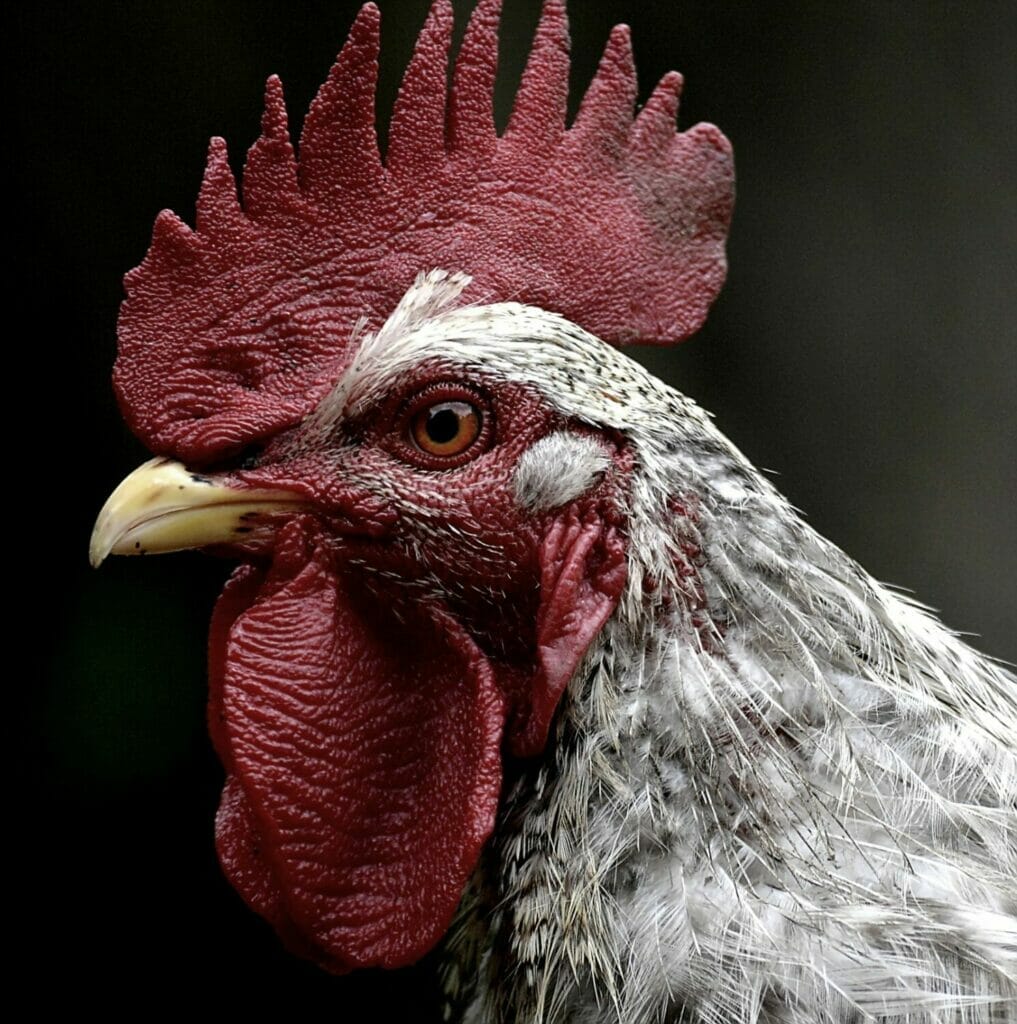
Mating and Crowing
Roosters will sometimes crow after they mate, and some researchers believe that this is because of a testosterone surge. This could also be why roosters crow in the morning too. Roosters are believed to be at their most potent, sexually speaking, in the morning right after they wake up, as well as in the late afternoon around dusk.
Author Note: Both these times of the day are a standard time for roosters to crow. Although it is still unconfirmed, the testosterone levels are high at both these times of the day, and this is also when roosters are the most active.
Some roosters are also known to crow after their hens have an egg. This is believed to be a way for roosters to let neighboring roosters know that their mating has been successful.
Competition Between Roosters
Roosters are competitive fowls and will often use their crows to let others know to stay away from their territory and that their hens are laying eggs. Although cockfighting seems to be common, roosters will often go out of their way to avoid fighting. Instead, they will use their crows to ward off potential threats. Roosters who suffer injuries from fighting will become easy pickings for larger, more threatening predators.
Other researchers believe that there is staunch competition among roosters. The primary rooster will kick off the morning crows, and the others will join in. But, the main rooster will always be the last one to crow as well.
Crowing Etiquette
Did you know that there is even some crowing etiquette among roosters?
If a flock has several roosters, then there is sure to be some type of pecking order. There will be the alpha rooster who kicks off the crowing, and the rest of the roosters will begin crowing according to their status. The final crow will always come from the main rooster. But what happens when a rooster crows and it is not his turn?
Well, the alpha roosters will typically put these young challengers in their place. If the main rooster is old or sick, then there is a high chance that a younger rooster challenges him. If the challenger loses the fight, he will not be exiled, but they often exile themselves out of what appears to be a bruised ego.
Why Do Roosters Have Three Eyelids?
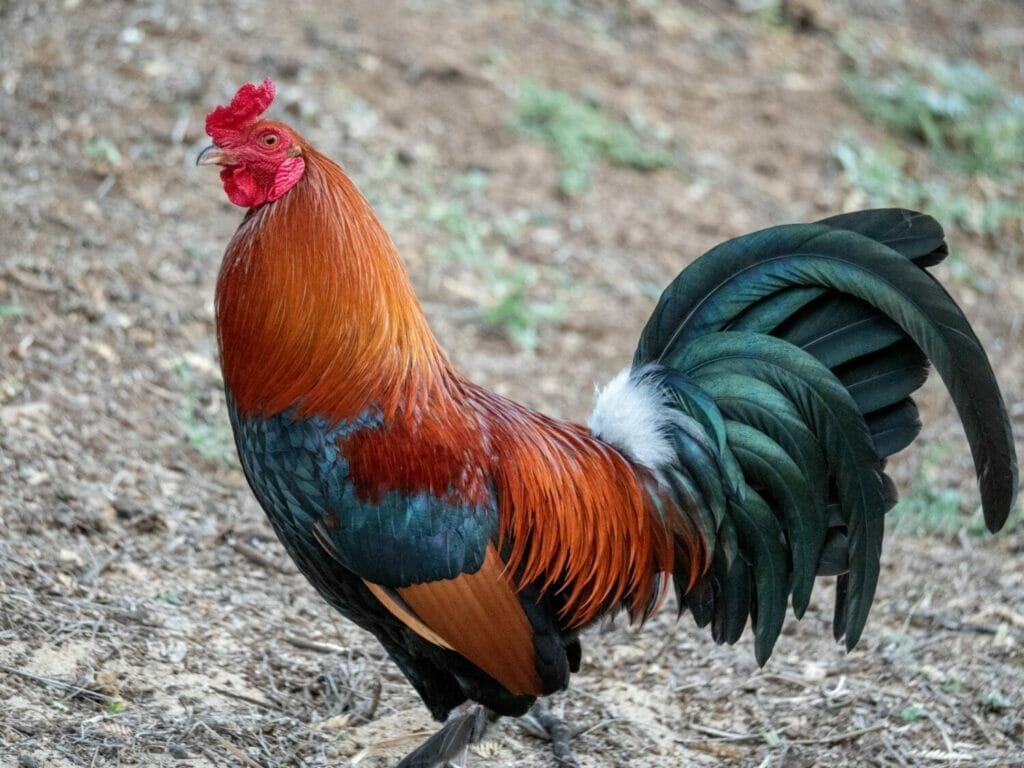
Chickens have three eyelids. One eyelid for the nictitating membrane, one for the lower lid, and one for the upper lid. When chickens and roosters are awake, usually during the day, their upper and lower lids will be open. However, the third eye, or the nictitating membrane, will blink. But this third eyelid is transparent, which means they can blink their eyes closed yet still be able to see through it. This transparent lid not only allows them to see but aids as a vital protective lid, helping to keep the eye wet and clean.
This third eyelid closes as a rooster bursts out into a crow. Have you ever watched a rooster crow? They throw their heads backs, which leaves them in a vulnerable position. Their throat is exposed, so they need to be able to see while they crow. Thanks to this transparent eyelid, they can protect their necks and throats and by keeping an eye out for any potential threats.
When a rooster crows, it closes or partly closes this third lid.
A rooster’s third eyelid closes while he is crowing because he is vulnerable when his head is thrown back during the crow, and his throat is exposed.
Conclusion
Author Note: Roosters will crow all day, simply because they can. There are several reasons for a rooster to crow. Perhaps they want to let other neighboring roosters know their hens are laying or simply want to hear their own crow. If a flock has plenty of roosters, then they are likely to crow more.
When there is only one rooster in the flock, then he might not crow as much. If you want to keep a flock of chickens but are a bit frightened of hearing roosters crowing all day, then look for more dormant species.
We hope you enjoyed this article on why do roosters crow all day.
Fly high friends!
FAQ
Roosters crow all day and night because it is a natural behavior for them to announce their presence and establish their territory. They also crow to signal the start of a new day and to attract a mate.
Cockerels, also known as young roosters, crow as a way to establish their dominance and territory, as well as to signal the start of a new day and attract a mate. This behavior is a natural and instinctual part of their biology.
Not all roosters will crow, as it is a behavior that is influenced by genetics and hormones, some roosters may not have the physical or hormonal ability to produce crowing sounds. However, most roosters will crow, especially in the presence of other males or when they are trying to attract a mate.
